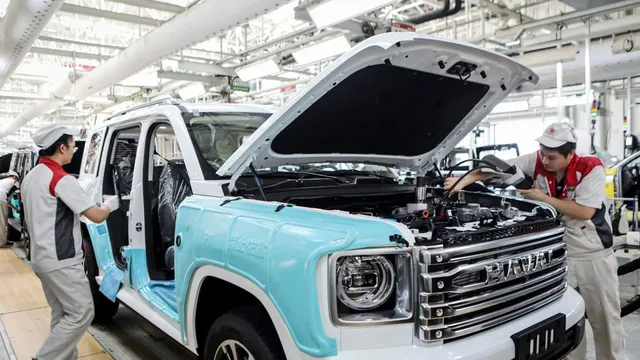
After US, Europe probes Chinese car software
2024-09-27 02:18- The U.S. government announced a desire to ban Chinese technology linking cars to the internet due to concerns over cyber-hacking threats.
- European officials are echoing these concerns, with discussions underway to assess the risks posed by Chinese car technology.
- The ongoing scrutiny of Chinese tech in vehicles highlights a broader geopolitical rivalry over control of key technologies and could impact Europe's automotive industry.
Express your sentiment!
Insights
The U.S. government has taken a significant step by proposing a ban on Chinese technology that connects cars to the internet, citing serious concerns about potential cyber-hacking threats. This announcement has prompted European officials to echo similar worries, as they recognize the risks associated with what EU digital czar Margrethe Vestager referred to as 'computers on wheels.' The EU is currently evaluating the implications of this technology on security and economic stability. In response to these concerns, European officials are working on measures to better understand and mitigate the perceived risks posed by Chinese tech in vehicles. This initiative is part of a broader effort to address cybersecurity in critical sectors, including transport. The EU's approach may resemble its previous actions regarding 5G technology, which led to restrictions on Chinese telecom vendor Huawei. The proposed U.S. ban could have significant repercussions for the European automotive industry, as many manufacturers rely on Chinese suppliers for various components. This situation may force European carmakers to seek alternative suppliers, potentially disrupting their production processes and market strategies. As the U.S. and EU navigate these complex issues, the ongoing scrutiny of Chinese technology in vehicles underscores a larger geopolitical rivalry over control of essential technologies, including artificial intelligence and microchips. The outcome of these discussions will likely shape the future landscape of the automotive sector in both regions.
Contexts
The European automotive industry is facing a significant challenge as Chinese electric vehicle (EV) manufacturers expand their presence in the market. With nearly 750 exhibitors from 38 countries showcasing their innovations, the competition is intensifying. Xpeng, a prominent Chinese automaker, has announced plans to enter the German market in 2024, following successful launches in Norway, Sweden, Denmark, and the Netherlands. Brian Gu, the president of Xpeng, emphasized the importance of Germany as a key market for all carmakers, highlighting the growing recognition among European manufacturers of the threat posed by their Chinese counterparts. The impact of Chinese technology on the European automotive landscape is profound. Swiss bank UBS has downgraded two major European automakers, citing the competitive pressure from China's expanding EV market. Christian Kames, an industry expert, noted that European carmakers are now acutely aware of the challenge posed by Chinese manufacturers, acknowledging that they are a real threat to traditional automotive giants. As the market evolves, European companies are preparing to engage more actively with this new reality. Chinese EVs have carved out a unique market position in Europe, significantly affecting the traditional automotive manufacturing sector and raising concerns about job security within the EU. In 2022, three of the best-selling battery electric vehicles (BEVs) in Europe were Chinese imports, indicating a shift in consumer preferences. As the demand for BEVs continues to rise, the potential for European-made cars to be replaced by those manufactured in China looms large. Looking ahead, projections suggest that if imports of China-made cars reach 1.5 million vehicles by 2030, the impact on the European economy could be substantial, with an estimated value-added effect of EUR 24.2 billion for the automotive sector. This scenario underscores the urgency for European manufacturers to adapt and innovate in order to remain competitive in an increasingly globalized market.